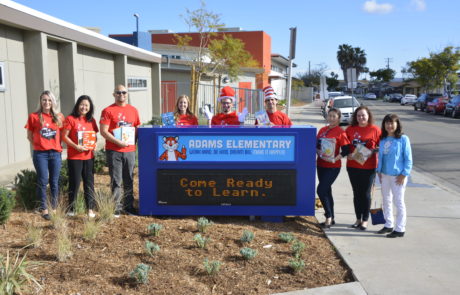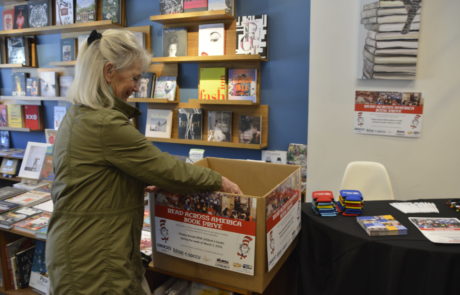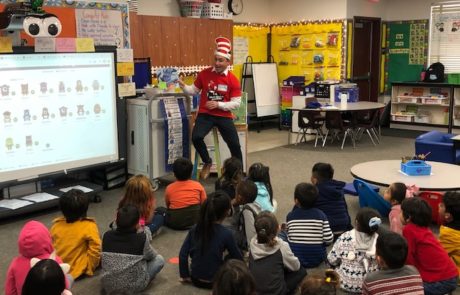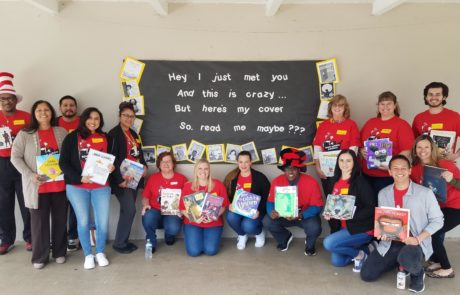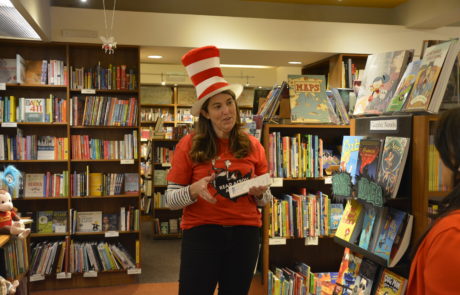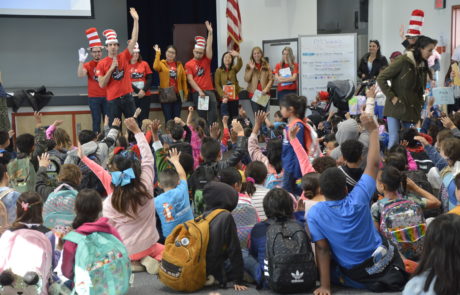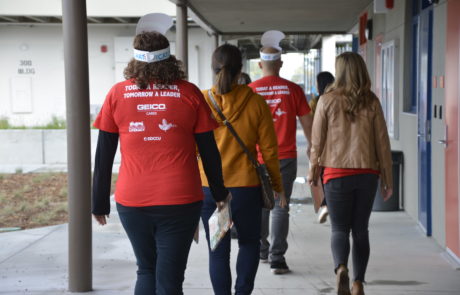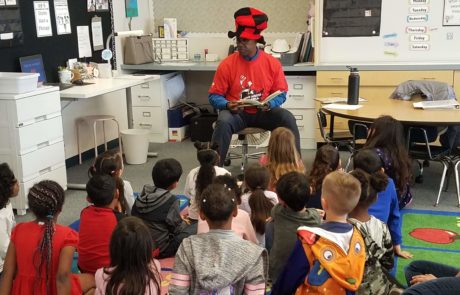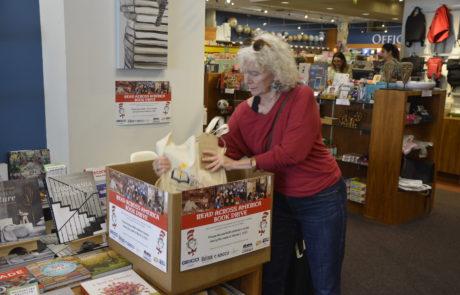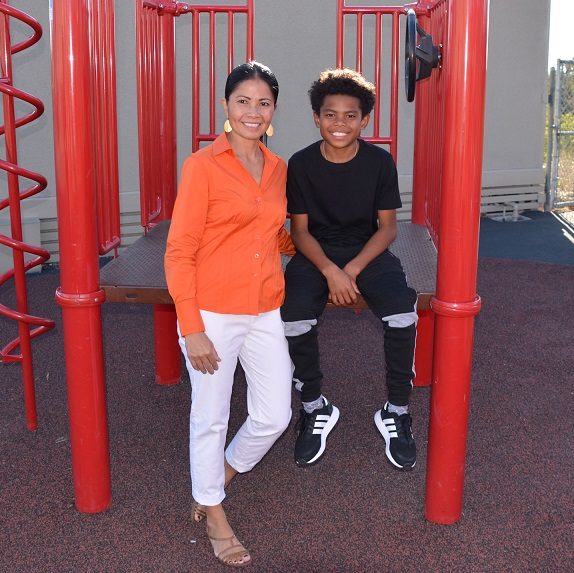Centennial Read Across America
Centennial Read Across America

“I really enjoyed volunteering with United Way for Read Across America. I think it’s an amazing program to participate in because it highlights the importance of community and youth engagement, as well as the valuable habit of reading. Overall, it was a great time, and I can’t wait to volunteer again,” exclaimed Jamie Kuehner, volunteer.
Written by: Claudia Chow, Digital Marketing Manager, UWSD
As we approached the third month of our Centennial Celebration, we could not think of a better way to celebrate than by expanding our Read Across America outreach. March 2nd marks the birth of Theodor Seuss Geisel, commonly known as Dr. Seuss, the author of many children’s books, and is nationally recognized as Read Across America Day. Each year, companies and individuals from across San Diego County volunteer with United Way of San Diego County (UWSD) to read with local students to promote and celebrate literacy in honor of Dr. Seuss’s Birthday. This year, in conjunction with our Centennial Celebration, UWSD extended the Read Across America celebration to a full week and also led a region-wide book drive to spark the love of reading among children in our community.
UWSD knows the key to early childhood success is literacy. Students who can’t read well by third grade are four times less likely to finish high school on time. In San Diego Unified School District alone, 24% of low-income 4th graders are reading proficient, 34 points lower than their counterparts (58% of non-low income students are proficient). That number jumps to six times less likely to graduate for students who come from low-income neighborhoods.
That’s why this year, in partnership with Warwick’s bookstore, GEICO, Holman Enterprises, San Diego Council on Literacy, and San Diego County Credit Union (SDCCU), we expanded our reach to increase our impact across the region.
Individuals were encouraged to donate new children’s books for the cause. Donations sites included Warwick’s in La Jolla, all SDCCU branch locations, UWSD, and several corporate partners’ offices. The accessibility to mulitple donation sites helped us collect over 1,000 new books for our summer initiative Readers in the Heights.
Did you know? During the 30s, Theodor Seuss Geisel published these famous Dr. Seuess books: Horton Hatches the Egg (1940), McElligot’s Pool (1947), Thidwick the Big-Hearted Moose (1948), and Bartholomew and the Oobleck (1949). In addition, to Dr. Seuss’s success, here is a look back into UWSD’s history in the 30s. Patriotic San Diegans responded with unprecedented generosity, pushing the War Chest over the $1 million mark in 1943.
Stay tuned as we continue to celebrate our 100th year leading up to our Gala on 10/10/2020.
To learn about the Centennial Celebration, visit uwsd.org/centennial.
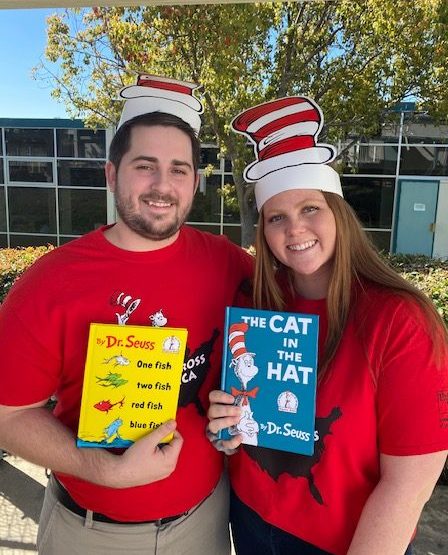 “I really enjoyed volunteering with United Way for Read Across America. I think it’s an amazing program to participate in because it highlights the importance of community and youth engagement, as well as the valuable habit of reading. Overall, it was a great time, and I can’t wait to volunteer again,” exclaimed Jamie Kuehner, volunteer.
“I really enjoyed volunteering with United Way for Read Across America. I think it’s an amazing program to participate in because it highlights the importance of community and youth engagement, as well as the valuable habit of reading. Overall, it was a great time, and I can’t wait to volunteer again,” exclaimed Jamie Kuehner, volunteer.